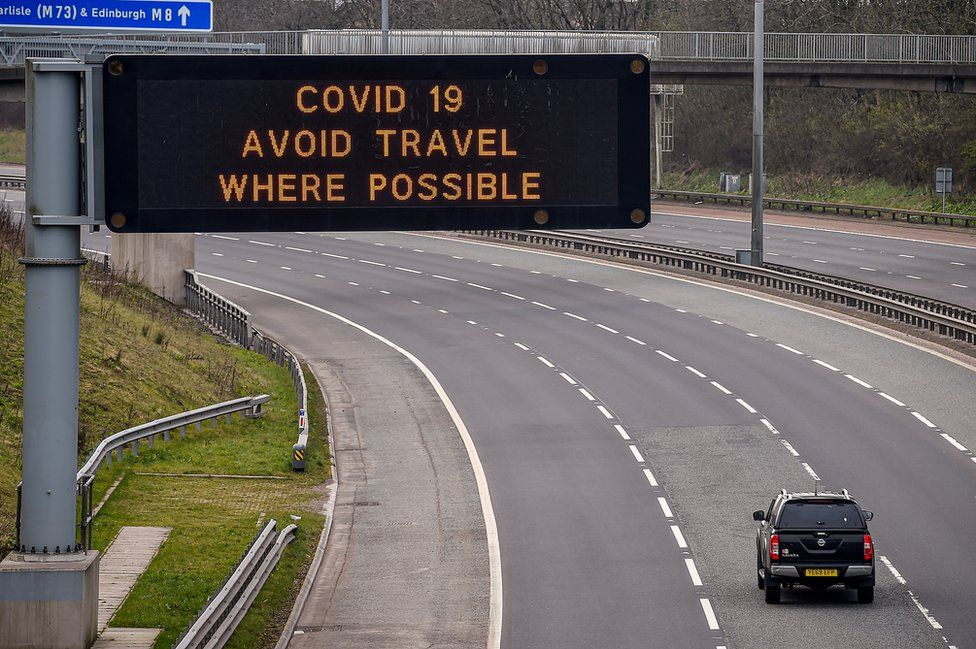Dr Susan Kenyon explains why the government and transport planners need to intervene now to encourage us to continue to reduce our personal travel and to support lasting travel behaviour change.
Government statistics tell us that levels of personal travel are starting to increase after six weeks in lockdown. Why is this?
Without targeted government interventions to address our ability and willingness to change our travel, it is to be expected that people would quickly begin to revert to normal patterns of travel behaviour.
The lockdown that we are experiencing in the UK as a result of the fight against Covid-19 initially led to a rapid decline in travel. This offered a glimpse of a possible alternative world, long hypothesised, where physical travel to access work, learning, shops, services, social networks and other goods is no longer as necessary.
There has been much excitement that this change would last beyond the immediate crisis. Because a reduction in travel has been proven to be possible and positive, surely it is logical to expect that we will continue to shun travel: that individuals will rationally assess the benefits of reducing their travel and choose to maintain this?
Unfortunately, this is rarely how decisions, particularly travel decisions, are made. My research suggests that our travel behaviour is informed by four key types of behavioural influences[i] that, most of the time, we are not able to control. Because of this, we aren’t able to choose our travel behaviour, or to choose to change it. Even when we are able to choose to change our behaviour, much of the time, we aren’t willing to do so.
These influences haven’t changed during lockdown. We have seen a temporary disruption, which has enforced change. But everything that we know about travel behaviour suggests that we will see a bounce back to normal travel behaviour as the lockdown is lifted: that the activity patterns that cause us to travel will settle back into a built environment that hasn’t changed. Travel will once again become a social and cultural norm; habits will return; our biological and psychological impetus for movement will be realised.
Targeted intervention by government and transport authorities is essential now, to address our ability and willingness to reduce our travel.
- Immediate actions to reduce travel in lockdown need to focus not on authority, but on marketing that makes reduced travel a social norm, a commitment, reciprocal behaviour that we like to do.
- In the longer term, once the immediate crisis is over, we can encourage people to gradually evolve their behaviour. This will help to make it easier to maintain the change, making it attractive and part of a wider social norm.
- Immediate actions to tackle our ability to reduce travel must focus on enabling virtual access. The digital divide is preventing access to work, learning, social networks, shopping. It is essential to audit and meet need for virtual mobility.
- In the longer term, to encourage continued virtual access, government, employers and service providers should also address infrastructure in the sense of the quality of activities.
- In the longer term, applying a mobility appraisal to all areas of policy could help us to travel less, refocusing policy delivery at the local level.
- There is a real opportunity to reduce social exclusion through virtual access to activities. Embracing this by introducing the necessary infrastructure should be a priority.
- Planners and transport planners must be encouraged to move from being facilitators of travel to disruptors, challenging the assumption of mobility and adding virtual mobility into the conversation.
Governments and other actors, across all policy areas, need to act, in the ways described above, to encourage travel behaviour change to embed and evolve, from necessity, to positive choice.
Read the full blog on the Politics and International Relations blog.
Dr Susan Kenyon is a Faculty Director of Learning and Teaching and Principal Lecturer in Transport, Politics and Society. She has studied transport and travel behaviour since 1998 and has published extensively in the area. Her module Transport, Politics and Society is open to second-year students studying Politics and International Relations. The module considers the challenges of social exclusion and sustainable development in transport planning and has been carefully designed to integrate work-related learning opportunities for students.
 Expert comment
Expert comment Emma Grafton-Williams
Emma Grafton-Williams 1867
1867


